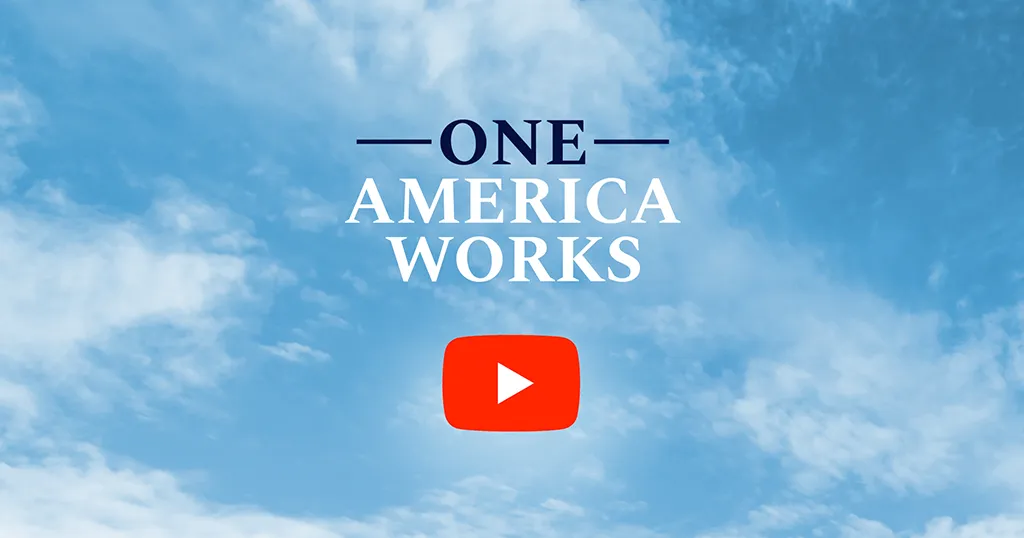If your company is looking to grow, it’s important to find a place where your team can thrive and still have access to a prosperous business market. Even today’s biggest tech firms are venturing beyond their first home in Silicon Valley and considering more than land availability and tax breaks.
Many businesses feel like they have to choose between cities with market opportunity and communities with high quality of life. However, the reality is that you can find a city that balances a healthy market with high-quality living. To explore cities that meet your unique business needs, try the One America Works City Selector Tool that creates customizable lists of cities ranking highly in selected criteria.

Using our new tool, we created the following list with filters that included the Happiness Index, Healthiest city index, Population with bachelor degree, STEM index, Job Market, and Opportunity Index.
- Austin, Texas
- Seattle, Washington
- Salt Lake City, Utah
- Pittsburgh, Pennsylvania
- Denver, Colorado
- Atlanta, Georgia
- Chicago, Illinois
- Tampa, Florida
- Dallas, Texas
- Phoenix, Arizona
Below, we continue to explore the factors that often accompany successful company expansion – market opportunities that make doing business easy alongside quality of life factors that make cities liveable for employees.

What Makes a City Business Friendly?
Incentives. Corporate tax incentives are one of the first things business leaders look for when thinking of company expansion. Arizona offers businesses a qualified facility tax credit of about 10% of the total qualified investment. Indiana’s headquarters relocation tax credit can be up to 50 percent of the corporation’s relocation costs.Tennessee’s Super Job Tax Credit gives $5,000 per job for companies that invest $10 million and create 100 headquarter jobs.
Some cities offer specific incentives for startup companies. Salt Lake City has a fund that encourages development and investments in its neighborhoods through low-interest loans. Minneapolis builds on the state’s existing low tax rate by offering small businesses advantages like loans, technical assistance grants, and various options for consulting.
Land Availability. Traditional tech cities like San Francisco and New York have little room to grow, quite literally. As some of the most densely populated cities, these urban centers create high demand for space with supply that just cannot keep up. This can make it expensive to maintain a physical office presence and retain talent that faces rising costs of living. More livable cities with ample room for expansion and well maintained infrastructure can affect your operational expenses. Moreover, they can help retain talent that want to stay near your company’s central offices.
Talent. One of the most consequential factors of expansion is your talent itself. In the era of rising physical mobility of the workplace, the “talent wars” can make it easy to prioritize technical skill level over other factors when taking on new members to your team. However, there is still something to be said about a concentration of diverse and competitive talent in one place. Remote teams still benefit from having a central “headquarters” in some of the fastest growing cities in the US. Urban centers like Austin, Atlanta and Raleigh, where just over half the population over 25 has Bachelor’s degrees, offer a plethora of strong and innovative minds to recruit. (Source: Census.gov)
Political climate. Politics affects business and business affects politics. When local political organizations are more open to new businesses, they make an effort to erase some of the obstacles that make it tough for businesses to expand. A political climate that invites businesses can be one of the most consequential factors for expanding your market while enabling economic growth. Changes in state policies regarding business taxes and labor laws in California are fueling the current exodus of small and large businesses alike. According to Forbes’ most recent Best States for Business list, Southern and Midwestern states are undoubtedly the best new homes for fast growing companies. North Carolina, Texas and Utah top the list with low business costs, high livability, and favorable regulatory environments.

What Makes a City People Friendly?
Quality of Life and Happiness. After you’ve got your amazing talent, the hard part is keeping them around. Perks and benefits like insurance coverage, vacation days and retreats sound enticing. Yet, one of the most substantial influences in talent retention long term is their own quality of life and their intrinsic happiness. When considering where to expand your company, the general livability of the city – its vibe, how residents perceive their well being, the degree to which it provides access to human services – all play a role. There are even ways to quantify these soft factors. The Quality of Life Index, now also known as the Where-To-Be-Born Index, began as The Economist Intelligence Unit’s way to measure the general well-being of a given population. U.S. cities like Raleigh, Columbus, Austin, Dallas rank highest in terms of their quality of life, making them some of the most promising hubs for growing teams. Another way to gain insight on resident well being is through the Happiness Index. The Happiness Index uses the results of Gallup surveys to measure subjective well being. U.S. cities, including Dallas, Atlanta and Chicago, make up nearly a fifth of the Top 50 Happiest Cities, according to the 2020 World Happiness Report released jointly by scholars from the University of Oxford and London School of Economics.
Natural surroundings. Something that many of the fastest growing tech cities have in common is the accessibility to incredible natural surroundings. Burgeoning tech cities across the world, including places like Bangalore, Singapore and Toronto, are nestled among nearby national parks, mountains and forests for easy and accessible getaways from busy city life. The fact that some of the most rapidly growing cities in the U.S. are also most livable cities in the U.S. is no coincidence. They offer beautiful landscapes and options for road trips, making them an environment that anyone would enjoy. Austin, with Zilker Park, Barton Creek and Hamilton Pool, gives a lush environment that boosts liveability. Phoenix, with its proximity to the Grand Canyon and Tonto National Forest, offers mountainous terrain ripe for hikers. Salt Lake City and Denver, both on either side of the Rocky Mountains, are also perfectly situated to be havens for hikers, climbers, skiers, and anyone that enjoys a great view.
At OAW, we created the City Selector Tool because we know the American landscape is changing. If you’re a company looking for the next place to invest in, we can help. Check out the tool for yourself, or contact us for further assistance and discussion.
https://www.numbeo.com/quality-of-life/region_rankings.jsp?title=2021®ion=021



